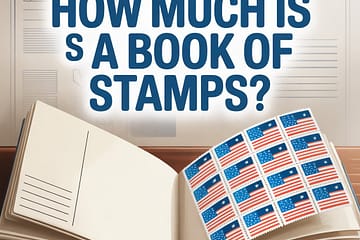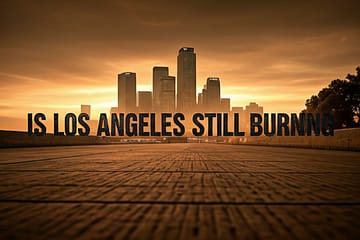Every year, on the third Monday in January, the United States honors Dr. Martin Luther King Jr. through a federal holiday that not only honors his life but also reflects on the ongoing struggle for civil rights and equality. In 2025, this significant day falls on January 20th, offering an opportunity to remember a leader whose vision continues to inspire millions.
The Life and Legacy of Dr. King
Dr. Martin Luther King Jr. was born on January 15, 1929, in Atlanta, Georgia. He emerged as a pivotal figure in the American civil rights movement during the 1950s and 1960s, advocating for nonviolent resistance to combat racial segregation and injustice. His famous “I Have a Dream” speech, delivered during the 1963 March on Washington, encapsulated his vision for a world where people would be judged by their character rather than their skin color. King’s commitment to equality and justice earned him the Nobel Prize for Peace in 1964. Tragically, his life was cut short when he was assassinated in 1968, but his legacy endures through the values he championed.
The Journey to a National Holiday
People started working to make Martin Luther King Jr. Day a national holiday very soon after he was killed. Congressman John Conyers introduced the first bill in April 1968, but it took 15 years of persistent advocacy for it to be signed into law by President Ronald Reagan in 1983. The first nationwide observance occurred in 1986, but it wasn’t until 2000 that all states recognized the holiday. This journey was fraught with challenges, including significant political opposition and public debates about King’s legacy. Notably, Arizona faced backlash when it initially resisted adopting the holiday, leading to boycotts and economic consequences that ultimately swayed public opinion.
Why Martin Luther King Jr. Day Matters Today
Reflecting on Racial Equality: In today’s society, issues of racial injustice remain prevalent. Martin Luther King Jr. Day serves as a reminder of the work that still needs to be done to achieve true equality. Encouraging Community Service: This holiday is unique as it is designated as a national day of service. People are encouraged to volunteer in their communities, embodying King’s spirit of selflessness and commitment to helping others.Inspiring Future Generations: Observing this day fosters conversations about civil rights among younger generations, ensuring that King’s message continues to resonate.
How People Celebrate
Across the country, communities engage in various activities to honor Dr. King’s legacy:
- Community Service Projects: Many people participate in local volunteer efforts, from cleaning parks to helping at food banks.
- Educational Programs: Schools and organizations host discussions and workshops about King’s teachings and the history of civil rights.
- Marches and Rallies: Events are held in cities nationwide to advocate for social justice and equality.
Key Events Leading to Martin Luther King Jr. Day
King’s Assassination (1968): Dr. Martin Luther King Jr. was killed on April 4, 1968. Just a few days later, Congressman John Conyers introduced a bill to make a holiday in his honor. Many people wanted to remember him for his work in civil rights.
Early Efforts (1968-1979): After King’s death, Conyers tried every year to get the bill passed, but it didn’t succeed. There was a lot of disagreement in Congress about making the day a holiday.
Growing Support (1981-1983): In the early 1980s, more people began to support the idea. Musician Stevie Wonder even wrote a song called “Happy Birthday” to help promote the holiday. A big march in Washington, D.C., brought together about 500,000 people who wanted the holiday.
Bill is Passed (1983): Finally, in 1983, the House of Representatives voted to make Martin Luther King Jr. Day a federal holiday. After some debates in the Senate, where some people opposed it, the bill passed there too. President Ronald Reagan signed it into law on November 2, 1983.
State Recognition (1986-2000): The first Martin Luther King Jr. Day was celebrated on January 20, 1986. However, not all states recognized it right away. Arizona and South Carolina were among the last states to adopt the holiday. Arizona finally recognized it in 1992 after public pressure and boycotts.
What is the main message of Martin Luther King Jr.’s most famous speech?
The main message of Martin Luther King Jr.’s most famous speech, “I Have a Dream,” revolves around the urgent need for racial equality and justice in America. Delivered during the March on Washington for Jobs and Freedom on August 28, 1963, King emphasized several key themes:
Call for Equality
King highlighted the long history of racial injustice faced by African Americans, stating that despite the Emancipation Proclamation, they were still not truly free. He urged the nation to fulfill its promises of freedom and equality as outlined in its founding documents.
Vision of Unity
Central to King’s message was his dream of a future where people would be judged not by their skin color but by their character. He envisioned a society where Black and white children could join hands as equals, symbolizing hope and unity among all races.
Nonviolent Resistance
King called for peaceful protests and nonviolent action against discrimination. He encouraged his followers to remain steadfast in their fight for justice without resorting to hatred or violence, emphasizing the importance of solidarity among all Americans.
Urgency for Change
He expressed a sense of urgency, stating that it was time to act against racial injustice. King described the current struggles as part of a “sweltering summer of the Negro’s legitimate discontent,” indicating that waiting for gradual change was no longer acceptable.
What was the emotional impact of King’s speech on his audience?
The emotional impact of Martin Luther King Jr.’s “I Have a Dream” speech on his audience was profound and transformative. Here are some key aspects of how it affected those who listened:
- Sense of Unity and Hope
King’s speech fostered a strong sense of unity among the audience. He spoke to over 250,000 people, emphasizing that they were all part of a collective struggle for civil rights. His vision of a future where people would be judged by their character rather than their skin color instilled hope and inspired many to believe in the possibility of change 23.
- Empathy and Recognition
King acknowledged the struggles faced by his listeners, expressing empathy for their hardships. By recognizing the trials and tribulations that many had endured, he created a personal connection with the audience, making them feel seen and understood 4. This emotional recognition encouraged them to engage more deeply with his message.
- Powerful Delivery
King’s oratory skills played a crucial role in the speech’s emotional impact. His passionate delivery, use of repetition, and rhythmic cadence drew listeners in and heightened their emotional response. The way he paused for emphasis allowed the audience to absorb his powerful words, creating moments of reflection that resonated deeply 35.
- Urgency for Action
King conveyed a strong sense of urgency, urging his audience that the time for change was now. He stated, “This is no time to engage in the luxury of cooling off,” which motivated listeners to take immediate action toward achieving civil rights 4. This call to action stirred feelings of determination and resolve among those present.
- Inspiration for Future Generations
The speech left an enduring legacy that continues to inspire people today. Many listeners felt empowered to continue fighting for equality and justice, not just for themselves but for future generations. King’s dream became a rallying cry for ongoing movements advocating for civil rights
How Martin Luther King Jr. Day became a federal holiday?
The establishment of Martin Luther King Jr. Day as a federal holiday was a lengthy and challenging process that involved significant advocacy and public support. Here are the key events that led to its creation:
- Immediate Proposal After King’s Assassination (1968)
Just four days after Dr. Martin Luther King Jr. was assassinated on April 4, 1968, Congressman John Conyers introduced the first bill to create a federal holiday in his honor. This initial proposal reflected the national grief and desire to commemorate King’s contributions to civil rights.
- Persistent Legislative Efforts (1968-1979)
Despite the emotional response following King’s death, the bill struggled to gain traction in Congress. Conyers reintroduced the legislation every year, but it faced significant opposition and limited support. In 1979, a vote was held on a proposed holiday, but it failed to pass due to insufficient votes.
- Growing Public Support (1980s)
In the early 1980s, support for the holiday increased significantly. Musician Stevie Wonder released the song “Happy Birthday” in 1981 to promote the idea of a holiday honoring King. This helped raise awareness and mobilize public opinion.
- Major March on Washington (1983)
The King Center organized a large march on Washington, which attracted around 500,000 participants. During this event, Coretta Scott King and Stevie Wonder presented a petition with over six million signatures advocating for the holiday.
- Passage of the Holiday Bill (1983)
On August 2, 1983, the House of Representatives voted overwhelmingly in favor of the bill (338-90). The Senate also passed it after contentious debates, including opposition from Senator Jesse Helms, who attempted to derail the bill by presenting negative information about King. Ultimately, on November 2, 1983, President Ronald Reagan signed the legislation into law.
- First Observance and State Recognition (1986-2000)
The first Martin Luther King Jr. Day was celebrated on January 20, 1986. However, it took additional years for all states to recognize it as a holiday. By 2000, every state had adopted Martin Luther King Jr. Day as an official holiday.
Why do we celebrate Martin Luther King Jr. Day?
We celebrate Martin Luther King Jr. Day to honor the life and work of Dr. Martin Luther King Jr., a leader in the fight for civil rights in America. Here are the main reasons why this day is important:
- Remembering Dr. King
Dr. King was a Baptist minister who fought against racial segregation and discrimination. He believed in using nonviolent methods to bring about change. His famous “I Have a Dream” speech inspired many people to work for equality.
- Promoting Equality
The day is a time to reflect on the principles of racial equality and justice that Dr. King stood for. It reminds us that everyone should be treated fairly, regardless of their skin color.
- Encouraging Service
Martin Luther King Jr. Day is also known as a national day of service. This means people are encouraged to volunteer and help their communities. It’s a way to honor Dr. King’s legacy by making a positive impact.
- Celebrating Progress
The holiday celebrates the progress made in civil rights but also reminds us that there is still work to do. It encourages everyone to continue fighting for justice and equality.
Do’s and Don’ts of Celebrating Martin Luther King Jr. Day
Do’s:
- Honor His Legacy: Take time to learn about Dr. King’s life and what he stood for. Share his message of equality and justice with others.
- Participate in Community Service: Join or organize volunteer activities to help your community. This reflects Dr. King’s belief in helping others.
- Educate Yourself and Others: Read books or watch videos about Dr. King and the civil rights movement. Discuss what you learn with family and friends.
- Attend Local Events: Look for parades, discussions, or community gatherings celebrating MLK Day. These events help bring people together.
- Encourage Discussions: Talk about your dreams for a better world, just like Dr. King did in his famous speech. Encourage open conversations about equality and justice.
Don’ts:
- Don’t Treat It as Just a Day Off: Remember that MLK Day is not just a holiday; it’s a day to reflect on important issues and take action.
- Don’t Limit Learning to One Day: Don’t only talk about Dr. King in January or February. His message is relevant all year round.
- Don’t Use His Image Without Context: Avoid using images of Dr. King without explaining their significance or discussing his message.
- Don’t Ignore Current Issues: Don’t forget that the fight for equality is ongoing. Use this day to address current social issues in your community.
- Don’t Make It All About Celebrating: While it’s good to celebrate, remember that the focus should be on service and making a positive change, not just having fun.
By following these do’s and don’ts, you can celebrate Martin Luther King Jr. Day in a meaningful way that honors his legacy and promotes equality for all.
What are some meaningful ways to volunteer on MLK Day?
Here are some meaningful ways to volunteer on Martin Luther King Jr. Day:
- Community Clean-Up Projects
Join local organizations to clean up parks, neighborhoods, or public spaces. This helps beautify the community and shows pride in your surroundings.
- Food Drives and Distribution
Volunteer at food banks or food drives to help provide meals for those in need. You can assist in sorting food donations or distributing meals to families facing hunger.
- Support Homeless Shelters
Reach out to homeless shelters to see how you can help. You might serve meals, organize donations, or simply spend time talking with those in need.
- Education and Youth Programs
Get involved with local schools or community centers by tutoring students or mentoring young people. Supporting education helps empower the next generation.
- Participate in MLK Day Events
Join local parades, marches, or celebrations that honor Dr. King’s legacy. These events often include community service activities and are a great way to connect with others who share your values.
- Community Gardens
Help out at a community garden where you can plant, maintain, and harvest fresh produce for local residents. This promotes sustainability and community involvement.
- Senior Citizen Assistance
Volunteer at senior centers by spending time with elderly residents, helping with activities, or providing companionship to those who may feel isolated.
- Blood Donation
Consider donating blood at a local blood drive. This simple act can save lives and is a meaningful way to give back to the community.
How can I teach my children about Dr. King’s life and legacy?
Teaching children about Dr. Martin Luther King Jr.’s life and legacy can be both meaningful and engaging. Here are some effective ways to do so:
- Read Books Together
Choose age-appropriate books about Dr. King and the civil rights movement. Some great options include:
- We Dream a World by Yolanda Renee King
- A Picture Book of Martin Luther King, Jr. by David Adler
- My Dream of Martin Luther King by Faith Ringgold
Reading these stories helps children understand his impact and the importance of equality and justice.
- Watch Educational Videos
Find kid-friendly videos that explain Dr. King’s life and work. For example, Kid President has a fun video that summarizes his contributions in an engaging way. PBS also offers informative documentaries suitable for children.
- Discuss His Values
Talk about the values Dr. King stood for, such as love, peace, and equality. Ask your children what these words mean to them and how they can practice these values in their own lives.
- Create Art Projects
Encourage kids to express their understanding of Dr. King’s dream through art. They can draw pictures of people holding hands to represent unity or create posters with quotes from his speeches.
- Participate in Community Service
Honor Dr. King’s legacy by volunteering as a family on MLK Day. This could involve helping at a local food bank, participating in a community clean-up, or supporting a charity.
- Use Interactive Activities
Make learning fun with interactive activities like:
- Creating a timeline of Dr. King’s life with important events.
- Making a mini-book about his achievements.
- Playing games that teach about civil rights history.
- Encourage Conversations About Change
Discuss with your children how they can make a difference in their own lives or communities, just as Dr. King did. Ask them about changes they would like to see and how they might help create that change.
- Explore Primary Sources
For older children, explore primary sources related to Dr. King’s life, such as letters, speeches, and photographs from The King Center or the Library of Congress. This helps them connect with history in a personal way.



0 Comments